 Here’s a Message from MakeSchools.org:
Here’s a Message from MakeSchools.org:
|
|
|
|
|
 Here’s a Message from MakeSchools.org:
Here’s a Message from MakeSchools.org:
|
|
|
|
|
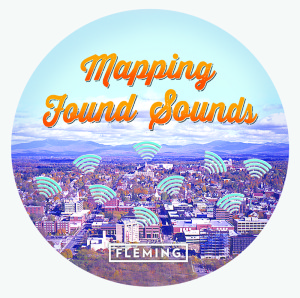 If you didn’t get a chance to attend the Mapping Found Sounds workshop offered this past April, you can learn more from this Seven Days article. This spring workshop was a great kickoff for credited courses this summer.
If you didn’t get a chance to attend the Mapping Found Sounds workshop offered this past April, you can learn more from this Seven Days article. This spring workshop was a great kickoff for credited courses this summer.
For example, the U of Vermont Fab Lab will be up and running this summer for an awesome three-week course called Innovate, Iterate, Make: The Art + Engineering of Rapid-Prototype Design. The first part will explore how innovators in engineering, contemporary art and architecture solve problems and advance ideas. Part 2 will have students learning how to design using open source hardware and programming, handmade electronics and rapid-prototyping tools! A lot of the class time will be dedicated to “Open Lab,” and students will have access to a plethora of resources and tools- how cool is that?
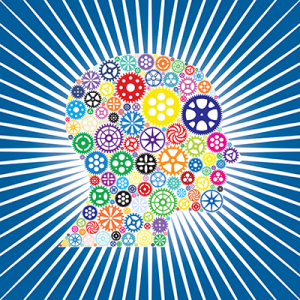 High school juniors and seniors also have the opportunity to spend two weeks in the Fab Lab with our four-week Maker’s Academy (Vermont Fab Lab Workshop), part of UVM’s Summer Academy. Half the month of July will be spent on campus (housing is available) and the other half online; spend the whole month exploring how innovators in engineering, contemporary art, architecture, and the DIY maker movement solve problems and advance ideas. If engineering draft and design is of more interest to your pre-college student, be sure to check out CEMS’s Pre-Engineering Academy this summer, Engineering Design (Solid Works).
High school juniors and seniors also have the opportunity to spend two weeks in the Fab Lab with our four-week Maker’s Academy (Vermont Fab Lab Workshop), part of UVM’s Summer Academy. Half the month of July will be spent on campus (housing is available) and the other half online; spend the whole month exploring how innovators in engineering, contemporary art, architecture, and the DIY maker movement solve problems and advance ideas. If engineering draft and design is of more interest to your pre-college student, be sure to check out CEMS’s Pre-Engineering Academy this summer, Engineering Design (Solid Works).
High-school students from around the state and US are getting ready to join us on campus for the Governor’s Institutes of Vermont Engineering Institute. From July 11-18, students will get their hands dirty with projects that explore basic and advanced engineering concepts with their peers and professional experts. At the same time, teachers will also be on campus, but as students! Learning about how to better integrate the Next Generation Science Standards into their classrooms and enhance STEM and STEAM education, teacher-learners will be participating in one of CEMS’s Vermont Engineering Initiative courses, Engineering Design Principles.
Fill out your application here

“Makers Academy” a precollege credited course is open to high school Juniors and Seniors. Funding available for Vermont Students.
Register by June 15. Learn More.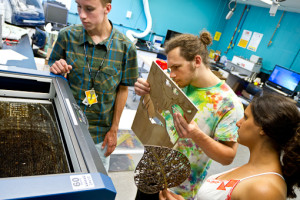

Our goal is to empower teachers to successfully implement engineering design in the classroom in accordance with the Next Generation Science Standards. We offer training opportunities, community support and connection to the vibrant faculty, research and facilities of UVM’s College of Engineering and Mathematical Sciences. Register by June 15! Learn More
Sustaining Momentum Through Creativity
Wednesday, April 8, 2015 Lincoln, NH
#clifcommconf – @uvmcems, @_ubam, @VTMakers, @ChamplainMaker
STEAM and Maker Resources for participants
11:15-11:45: Speaker: Jenn Karson, founder Vermont Makers and Doug Webster of Champlain Maker Faire
11:45-12:30: Networking and lunch
12:30-1:30: Concurrent Sessions
MakerSpace: Hands-On Experience – squishy circuits, toy hacking, e-textiles, e-origami
Jenn Karson, College of Engineering and Mathematical Sciences, UVM and Doug Webster, Education Coordinator – Agency of Education, Producer – Champlain Maker Faire
Note: Incoming Year of the Book schools will attend a mandatory introductory session, 12:30-1:30.
1:30-2:30: Concurrent Sessions – you will go to the one you did not attend first.
2:30-3:00: Wrap Up Discussion
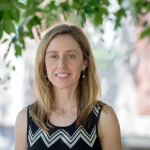 Jenn Karson founded Vermont Makers in 2011, an interdisciplinary collective that brings art, programs and ideas to museums, galleries, colleges, universities, K-12 education and public spaces. Jenn and her partners initiated “Vermont Libraries and Makers Spark A Culture of Innovation” in 2014, producing 28 summer STEAM (Science, Technology, Engineering, Arts and Math) programs for 15 Vermont Libraries. She is lecturer and the director of communications for the University of Vermont’s College of Engineering and Mathematical Sciences, where she also supervises the FabLab, and a project collaborator for the exhibition “Staring Back: The Creation and Legacy of Picasso’s Demoiselles d’Avignon”.
Jenn Karson founded Vermont Makers in 2011, an interdisciplinary collective that brings art, programs and ideas to museums, galleries, colleges, universities, K-12 education and public spaces. Jenn and her partners initiated “Vermont Libraries and Makers Spark A Culture of Innovation” in 2014, producing 28 summer STEAM (Science, Technology, Engineering, Arts and Math) programs for 15 Vermont Libraries. She is lecturer and the director of communications for the University of Vermont’s College of Engineering and Mathematical Sciences, where she also supervises the FabLab, and a project collaborator for the exhibition “Staring Back: The Creation and Legacy of Picasso’s Demoiselles d’Avignon”.
 Doug Webster is an engineer, innovative thinker, futurist, and artist, who supports a renewed culture of innovation and enterprise development. He founded the Champlain Maker Faire and host corporation, CMF Inc., a non-profit dedicated to innovation education and advancing scientific research. He is past president of the National Association for Workforce Improvement, producer ofthe RETN TV Series, “A Renewed Culture of Innovation”, and works to strengthen STEAM education with the Vermont Agency of Education.
Doug Webster is an engineer, innovative thinker, futurist, and artist, who supports a renewed culture of innovation and enterprise development. He founded the Champlain Maker Faire and host corporation, CMF Inc., a non-profit dedicated to innovation education and advancing scientific research. He is past president of the National Association for Workforce Improvement, producer ofthe RETN TV Series, “A Renewed Culture of Innovation”, and works to strengthen STEAM education with the Vermont Agency of Education.
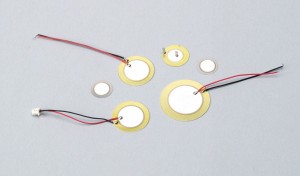 Mapping Found Sounds
Mapping Found SoundsTHIS WORKSHOP IS FULL
Wednesday, April 15, 5-8 pm; Saturday, April 18, 12-3 pm
The workshop will meet at UVM’s Fab Lab in Votey 122 on the UVM campus. Materials Fee: $25; call the Museum Education Department at 656-0750
Track the sonic footprints of Burlington and create an experiential sound map of obscured ambient noise inspired by John Cage’s experiments with everyday sound. In part one of this two-part workshop, participants make a simple electronic listening device by repurposing the ubiquitous and inexpensive contact microphones (piezos) found in old cellphones, computers, and other devices. In part two, participants discover hidden sounds and contribute to the creation of a unique sound map of Burlington.
Jenn Karson, Project Collaborator on Staring Back, and Supervisor, UVM’s Fab Lab; Griffin Jones ’15 Electrical Engineering
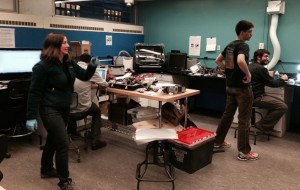 Innovate, Iterate, Make: The Art + Engineering in Rapid-Prototype Design
Innovate, Iterate, Make: The Art + Engineering in Rapid-Prototype DesignOffered two times in 2015: An intensive Summer program and during theFall 2015 semester
Summer as part of the Vermont Engineering Initiative:
2 weeks on campus 2 weeks off
CEMS 295 Z2
July 13 – August 7, 2015
Read the article “UVM’s Fab Lab Provides Play Space for “Makers” of All ages”
Syllabus
The first part of the course explores how innovators in engineering, contemporary art and architecture solve problems and advance ideas. Students will learn how to design using open source hardware and programming, handmade electronics and the rapid prototyping tools in the U of Vermont Fab Lab.
The first part of the course explores how innovators in engineering, contemporary art and architecture solve problems and advance ideas. Students will learn how to design using open source hardware and programming, handmade electronics and the rapid prototyping tools in the U of Vermont Fab Lab.
For the second part of the course, students plan and execute a self-directed and designed project. Much of class time becomes dedicated to “Open Lab,” allowing students access to rapid-prototyping resources of the U of Vermont Fab Lab. Assigned readings and teachings cover project management, presentation skills, and design thinking. The final project requires documentation of a well-developed product or concept and the presentation of an early prototype.
This class is of interest to:
Fall 2015
One 3 hour class per week for the full semester
 Maker’s Academy
Maker’s Academy(Vermont Fab Lab Workshop)
Pre college course (open to high school juniors and seniors)
2 weeks on campus 2 weeks off
Summer Academy Website
Ask a question
Read the article “Pre-college Class Goes Deep into the DIY Maker Movement”
Syllabus
This course explores how innovators in engineering, contemporary art, architecture and the DIY maker movement solve problems and advance ideas. Students will learn the basics of how to design using open source hardware and programming, handmade electronics and the rapid prototyping tools in the U of Vermont Fab Lab. This course provides hands-on experience with the Arduino microcontroller, 3d printing and laser cutting and engraving. Assigned readings and teachings cover project management, presentation skills, and design thinking. The final project requires documentation of a well-developed product or concept and the presentation of an early prototype.